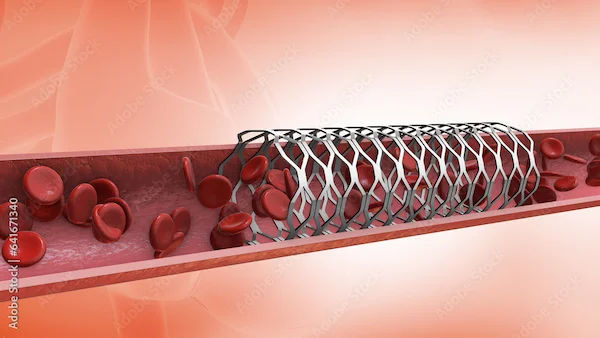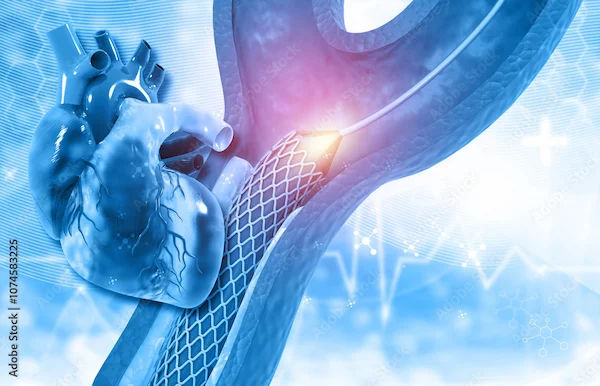How Soon After Angioplasty Can You Fly?
Find out how soon you can fly after angioplasty, including medical guidelines, recovery tips, and travel safety precautions for heart patients.

Written by
Last updated on 10th Jul, 2025
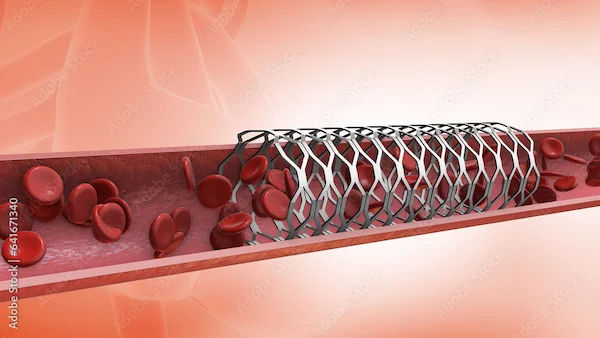
Introduction
If you or a loved one has recently undergone angioplasty, you might be wondering when it’s safe to travel by air. Flying after a heart procedure like angioplasty requires some precautions to ensure a smooth and safe journey. In this article, we’ll discuss when you can fly, what factors influence this decision, and how to travel comfortably after angioplasty.
Understanding Angioplasty and Recovery
Angioplasty is a common procedure used to open blocked or narrowed coronary arteries, improving blood flow to the heart. A small stent is often placed to keep the artery open. While the procedure is minimally invasive, your body still needs time to heal.
Typical Recovery Timeline
First 1-2 Days: You may stay in the hospital for observation.
First Week: Rest is crucial; avoid strenuous activities.
2-4 Weeks: Gradual return to light activities under medical advice.
When Can You Fly After Angioplasty?
The general recommendation is to wait at least 1-2 weeks before flying, but this can vary based on:
1. Your Doctor’s Approval: Always consult your cardiologist before planning air travel.
2. Type of Angioplasty: If it was an emergency procedure, recovery may take longer.
3. Overall Heart Health: If you have other heart conditions, flying may be delayed.
4. Flight Duration: Short flights (under 2 hours) may be allowed sooner than long-haul flights.
Most airlines and medical guidelines suggest waiting at least 7-10 days after an uncomplicated angioplasty before flying.
Consult Top Cardiologists To Know When You Can Fly
Risks of Flying Too Soon After Angioplasty
Flying too early can increase the risk of:
Blood clots due to prolonged sitting and reduced cabin pressure.
Heart strain from stress, dehydration, or low oxygen levels in the cabin.
Stent-related complications, though rare, movement or pressure changes could affect healing.
Tips for Safe Air Travel After Angioplasty
If your doctor approves your travel plans, follow these precautions:
1. Choose the Right Time
Avoid flying within the first week unless absolutely necessary.
Opt for flights during cooler parts of the day to reduce stress.
2. Stay Hydrated and Move Around
Drink plenty of water to prevent dehydration.
Walk in the aisle every 1-2 hours to improve circulation.
Perform seated leg exercises (ankle rotations, toe lifts) to prevent clots.
3. Carry Medications and Medical Records
Keep your prescribed medicines especially blood thinners in your hand luggage.
Carry a doctor’s note detailing your condition and recent procedure.
Have emergency contact numbers handy.
4. Wear Compression Stockings
These help reduce swelling and lower the risk of deep vein thrombosis (DVT).
5. Avoid Stress and Heavy Luggage
Use airport assistance services if needed.
Travel with a companion for support.
When to Avoid Flying Altogether?
Avoid air travel if you:
Experienced complications after angioplasty (e.g., bleeding, irregular heartbeat).
Still have chest pain or shortness of breath.
Have uncontrolled high blood pressure or heart failure.
Conclusion
Recovery after angioplasty varies for each person. While many patients can fly within 1-2 weeks, always check with your doctor first. By following medical advice and taking precautions, you can ensure a safe and comfortable journey.
If you have concerns about flying after angioplasty or need a post-procedure check-up, consult a cardiologist on Apollo 24|7. You can easily book an appointment or a heart health test through the app or website.
Consult Top Cardiologists
Consult Top Cardiologists To Know When You Can Fly

Dr. Amit. A. Bharadiya
Cardiologist
12 Years • MBBS, MD General Medicine, DNB Cardiology, FSCAI
Maharashtra
Surabhi Hospital, Maharashtra, Maharashtra

Dr. Mangesh Danej
Cardiologist
8 Years • MBBS, MD (General Medicine), DNB (Cardiology)
Pune
Dr Danej clinic, Pune
(375+ Patients)
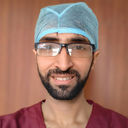
Dr. Pinaki Nath
Cardiologist
8 Years • MBBS, MD General Medicine, DM Cardiology
Barasat
Diab-Eat-Ease, Barasat
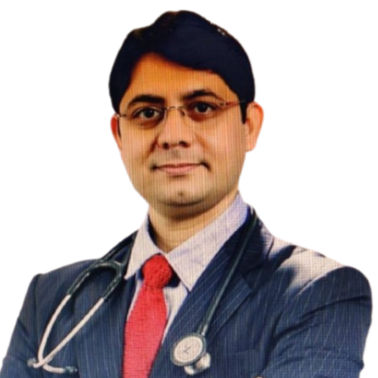
Dr Yogendra Singh Rajput
Cardiologist
16 Years • MBBS, MD (General Madicine), DM (Cardiology)
Gurugram
Svasthya Child & Cardiac Care, Gurugram

Dr. Thangamalar
Cardiologist
3 Years • MD DM cardiology
Dindigul
Nirvin heart and Lung hospital, Dindigul
Consult Top Cardiologists

Dr. Amit. A. Bharadiya
Cardiologist
12 Years • MBBS, MD General Medicine, DNB Cardiology, FSCAI
Maharashtra
Surabhi Hospital, Maharashtra, Maharashtra

Dr. Mangesh Danej
Cardiologist
8 Years • MBBS, MD (General Medicine), DNB (Cardiology)
Pune
Dr Danej clinic, Pune
(375+ Patients)

Dr. Pinaki Nath
Cardiologist
8 Years • MBBS, MD General Medicine, DM Cardiology
Barasat
Diab-Eat-Ease, Barasat

Dr Yogendra Singh Rajput
Cardiologist
16 Years • MBBS, MD (General Madicine), DM (Cardiology)
Gurugram
Svasthya Child & Cardiac Care, Gurugram

Dr. Thangamalar
Cardiologist
3 Years • MD DM cardiology
Dindigul
Nirvin heart and Lung hospital, Dindigul

